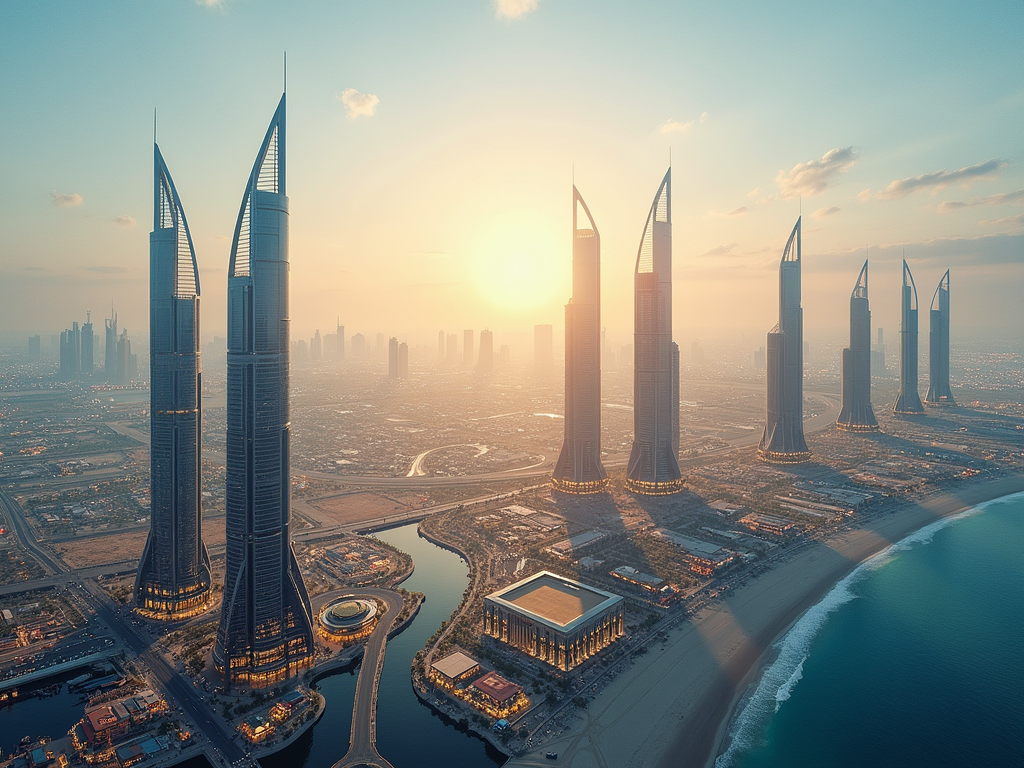Dubai’s Vision 2030 is a comprehensive plan aimed at transforming the emirate into a global hub for business and innovation. By focusing on sustainability, innovation, and economic diversification, Vision 2030 is poised to create significant business opportunities across various sectors. This strategic vision not only enhances the city’s infrastructure but also encourages foreign investment, technology development, and a vibrant entrepreneurial ecosystem. The plan’s multifaceted approach is reshaping the landscape for businesses, making it a more attractive destination for both local and international enterprises. Understanding these shifts is crucial for companies looking to capitalize on Dubai’s growth potential.
The Core Pillars of Vision 2030

The success of Dubai’s Vision 2030 can be attributed to its core pillars, which provide a strong framework for sustainable growth and economic diversification. These pillars include:
- Economic Diversification: Reducing reliance on oil revenues by promoting sectors such as tourism, tech, and finance.
- Sustainable Development: Implementing green initiatives and sustainable practices to preserve the environment and resources.
- Innovative City: Fostering a culture of innovation and entrepreneurship through support for startups and advanced technologies.
- Human Capital Development: Investing in education and training to enhance the skills of the workforce.
- Quality of Life: Creating an environment that enhances the well-being of residents and attracts global talent.
These pillars not only set the direction for Dubai’s future but also create numerous business opportunities in each sector. Companies can leverage these initiatives to align their strategies with the city’s long-term goals.
Impact on Various Business Sectors

Dubai’s Vision 2030 significantly influences several key business sectors, spurring growth and innovation. Notable sectors impacted include:
- Tourism and Hospitality: With the emirate striving to increase tourist arrivals, investments in hotels, attractions, and services are booming.
- Technology and Innovation: The push for a smart city has led to a surge in demand for tech solutions, particularly in IoT and AI.
- Real Estate: Urban development projects are creating a dynamic real estate market, offering opportunities in both commercial and residential properties.
- Healthcare: Initiatives focused on improving healthcare services and facilities are encouraging investments in medical technology and services.
- Renewable Energy: Sustainability initiatives have opened pathways for businesses focused on solar power and other renewable energies.
Each of these sectors is interlinked with the broader goals of Vision 2030, leading to a healthier business ecosystem that promotes growth and sustainability.
The Vision 2030 framework is attracting investors from around the globe who are eager to tap into Dubai’s dynamic market. Several investment opportunities are emerging, such as:
- Public-Private Partnerships: Dubai is encouraging partnerships that can foster infrastructure development across various sectors.
- Innovation Hubs: The establishment of free zones and business incubators supports startups and fosters innovation.
- Green Projects: As part of sustainable development, investment in eco-friendly projects will become increasingly significant.
- Tourism Ventures: With Expo 2020 acting as a catalyst, there are significant opportunities for tourism-related businesses.
- Smart Technologies: The demand for new technologies will create opportunities in software development and tech services.
These investment channels are pivotal in attracting businesses and entrepreneurs aiming to benefit from Dubai’s rapid growth.
Challenges and Considerations for Businesses
While Dubai’s Vision 2030 presents various opportunities, businesses should also consider potential challenges they may face. Key challenges include:
- Competition: As more companies enter the market, the competition intensifies, necessitating innovative strategies to stand out.
- Regulatory Environment: Understanding local regulations is crucial for operating successfully within Dubai’s business landscape.
- Cultural Adaptation: Businesses must adapt to the local culture and practices, which can be quite different from those in their home country.
- Market Dynamics: Rapid market fluctuations and changes in consumer behavior require businesses to be agile and responsive.
- Supply Chain Management: Establishing efficient supply chains can be challenging amidst fast-paced growth and demand.
Addressing these challenges effectively can help businesses become resilient and sustainable as they adapt to the evolving market landscape.
Conclusion
Dubai’s Vision 2030 is a transformative blueprint that is reshaping the landscape of business opportunities. With its emphasis on economic diversification, sustainable practices, and innovation, the emirate is well-positioned to attract global businesses and investors. Companies that align their strategies with the vision’s pillars and embrace the emerging opportunities stand to gain significantly. As Dubai continues to evolve, the collaborative efforts among the government, businesses, and the community will ensure a prosperous future for all stakeholders.
Frequently Asked Questions
1. What is Dubai’s Vision 2030?
Dubai’s Vision 2030 is a strategic plan aimed at transforming the emirate into a global economic hub through sustainable development, innovation, and economic diversification.
2. What sectors are seeing growth due to Vision 2030?
Sectors such as tourism, technology, real estate, healthcare, and renewable energy are experiencing significant growth under Dubai’s Vision 2030.
3. How can businesses benefit from Vision 2030?
Businesses can benefit by aligning their operations with the initiatives of Vision 2030, tapping into new investment opportunities and innovative projects.
4. What challenges might businesses face in Dubai?
Challenges include intense competition, regulatory complexities, the need for cultural adaptation, fluctuating market dynamics, and managing supply chains efficiently.
5. Why is sustainability important in Vision 2030?
Sustainability is essential as it ensures the preservation of resources and promotes a healthier environment, contributing to the overall quality of life and economic stability of Dubai.
